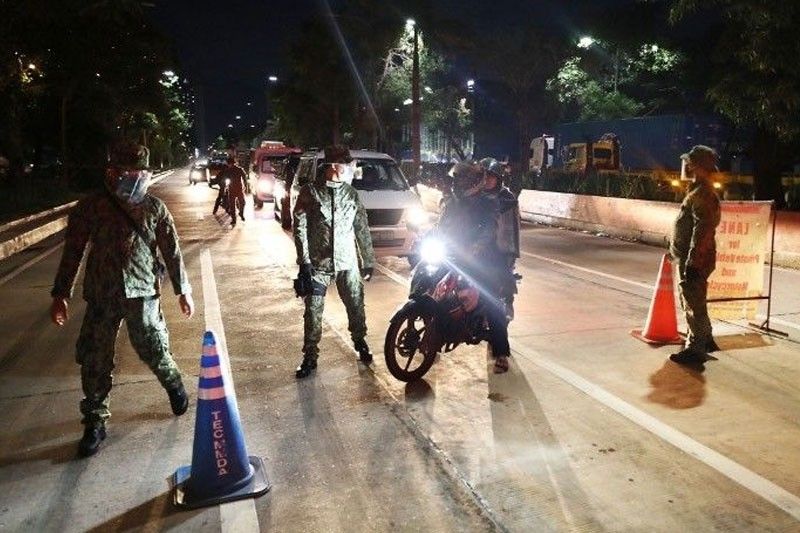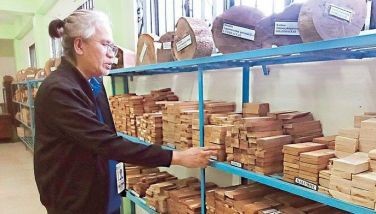Extended MECQ? Delicate balancing of health, economy needed

MANILA, Philippines — Extending the strict lockdown in Metro Manila and nearby areas requires a “delicate balancing” of health and the economy, Malacañang said yesterday, as it assesses the effect of tighter quarantine measures on the spread of COVID-19.
The government placed the National Capital Region and the provinces of Bulacan, Laguna, Cavite and Rizal under modified enhanced community quarantine (MECQ) from Aug. 4 to 18 in response to the call of health workers for a “timeout” to allow them and the government to refresh and improve pandemic response strategies.
Some experts, including former National Task Force COVID-19 adviser Tony Leachon, are recommending that the MECQ be stretched to one month, saying that doing so would flatten the coronavirus curve.
“The incubation period for COVID-19, according to health experts, is 14 days so we just have to wait for that time to ascertain the health impact of the MECQ classification,” presidential spokesman Harry Roque said in a statement.
“On the suggestion to make the MECQ effective for one month, this is a decision that has to be made by the Inter-Agency Task Force on Emerging Infectious Diseases. It entails a delicate balancing of protecting and saving people’s health to protecting and saving the economic health of the nation,” he added.
The Philippines has logged nearly 130,000 COVID-19 infections, the highest in Southeast Asia. About 60,000 of the cases are active, according to health department data released last Sunday. More than 17,000 cases have been recorded since the MECQ took effect last Aug. 4.
For the Department of Health (DOH), it will take three weeks for the impact of the MECQ to become evident.
“It may take us three weeks before we can see the effects of this lockdown that we have now. We still have to look if our recalibrated strategies (will work),” DOH Undersecretary Maria Rosario Vergeire said at a press conference.
These strategies include the establishment of the one hospital command, scaling up of contact tracing and transferring those asymptomatic and with mild symptoms to quarantine facilities from home quarantine under Oplan Kalinga.
She also said the DOH will have to make an assessment based on various indicators and not only on the number of COVID-19 cases being reported.
Vergeire added in making an evaluation, they also have to consider that the incubation period of COVID-19 virus is 14 days.
Defense Secretary Delfin Lorenzana, who is also chairman of the National Task Force (NTF) against COVID-19, said Metro Manila is ready to return to general community quarantine or GCQ by Aug. 18, citing what he considered a downtrend in positive cases. “I think we are ready to go down,” he told ANC’s “Headstart.”
NTF COVID-19 response chief implementer Carlito Galvez Jr. said they acknowledge the need to recalibrate the way they deal with the problem.
“As we gradually open up our nation’s economy, the Duterte administration is now implementing the second phase of the NAP (national action plan). It is focused on ensuring the health of Filipinos, while breathing life into the nation’s economy,” Galvez said.
“The NAP 2 uses the Hammer and Dance Theory, wherein the government shall continue to contain the spread of the virus through its zoning containment strategy or targeted lockdowns, while slowly rebuilding the economy,” he said.
“We will also continue to strictly implement health and safety standards across all quarantine classifications, as well as further increase our testing capacity and contact tracing capability especially in high-risk communities and, consequently, curb the spread and mitigate the impact of the disease by effective isolation, quarantine and treatment of COVID-19 cases,” Galvez added.
The pandemic has dragged the Philippines into a recession or two consecutive quarters of economic contraction, the first time in 29 years, as lockdown measures had forced thousands of businesses to close shop. The country’s economy plunged by a record 16.5 percent in the second quarter, deeper than the 0.7-decline in the first three months, but officials are optimistic that a proposed stimulus package will enable worst-hit sectors to recover. – Sheila Crisostomo, Michael Punongbayan, Jose Rodel Clapano
- Latest
- Trending































